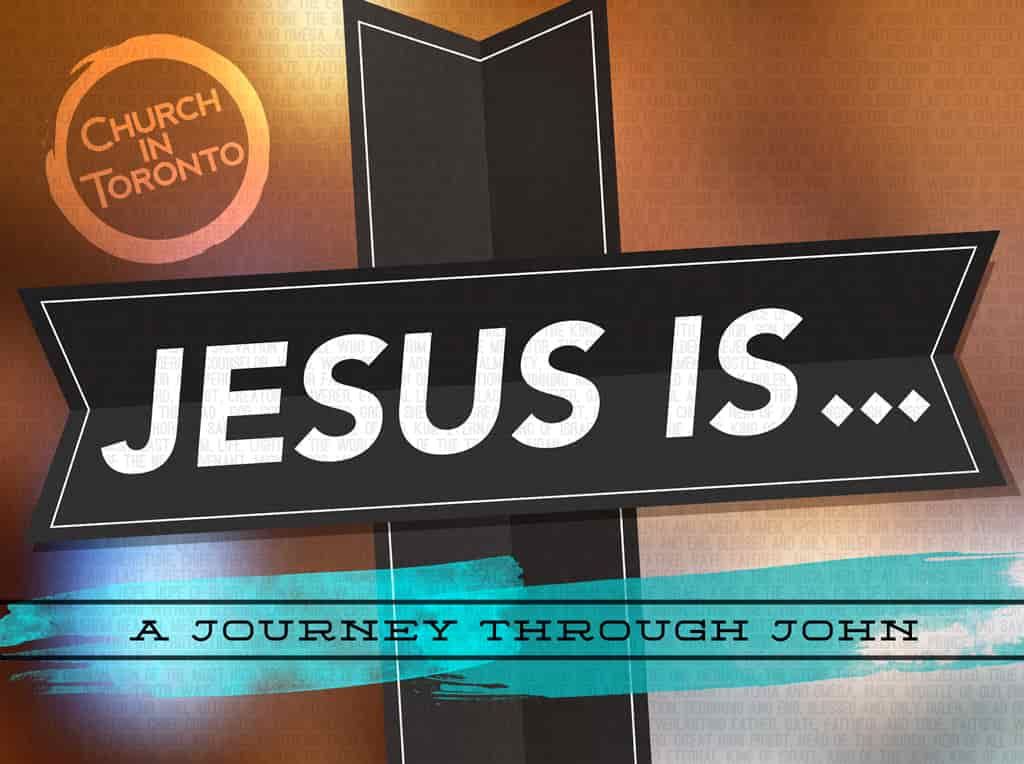 Church in Toronto - Sermon Library (Beta version under construction)
Church in Toronto - Sermon Library (Beta version under construction)
Sermons - Introduction
This page indexes messages from CIT pastors since 2012, reflecting the growth of CIT's congregation and the divine anointing on their messages.
Typically based on Bible books, each series derives from biblical texts to convey a clear, God-inspired message, avoiding excessive human interpretation.
While some books are revisited, messages evolved according to CIT's need and condition, demonstrating the living nature of God's Word.
Technological advancements since 2012 have enhanced capturing and rendering the spiritual atmosphere, amplifying the impact of messages.
They often come with study guides, outlines, and summaries, and recent ones include YouTube videos,
while earlier ones are in audio format. Earlier messages have basic recordings uploaded to YouTube.
We celebrate witnessing God's children forging profound, transformative connections with Jesus through these messages--made freely accessible here,
for such purposes. Acknowledgment of this source is appreciated when used.

Journey with Jesus
2025 September - Present
Scriptures: Luke
Theme: This Gospel’s author, Luke was not an eyewitness to Jesus’ life, death, or resurrection. However, he carefully investigated the events, interviewing eyewitnesses and consulting earlier accounts. The result is the most comprehensive Gospel, and its sequel, the Acts of the Apostles. Luke’s Gospel begins with the parallel birth narratives of John the Baptist and Jesus, includes a unique glimpse into Jesus’ youth, and then focuses on his ministry in Galilee and Judea. A major theme throughout is the journey—Jesus travels through villages and cities, ultimately heading toward Jerusalem, where he will suffer, die, and rise again. Along the way, Jesus reveals his identity and mission, while calling his disciples to follow him and embrace their own path of discipleship. Luke’s Gospel is more than a biography; it is a spiritual roadmap. As we read it, we are invited to journey with Jesus, discover who he is, and learn what it truly means to follow him.

Essentials 2025
2025 July - 2025 August
Scriptures: Various
Theme: Theme: What are the core truths that define Christianity—truths so central that without them, the faith itself falls apart? This series will help us understand the foundational doctrines that every believer must embrace to rightly be called “Christian.”
While the Bible teaches many things—about God, Jesus Christ, the Holy Spirit, humanity, and the Church—not all doctrines carry equal weight. Faithful Christians may disagree on secondary matters such as prophecy, church governance, or how divine sovereignty relates to human free will. These are important, but not essential.
In contrast, this series focuses on nine non-negotiable, biblical truths:
- The Trinity
- God as Creator
- Humanity’s Fall
- Christ’s Incarnation
- His redemptive Death and Resurrection
- The Holy Spirit
- Salvation by grace through faith
- Our Eternal Destiny
Each topic will be grounded in Scripture and applied to our personal lives and life together as the Church. Come ready to deepen your faith—and your confidence in what truly matters.
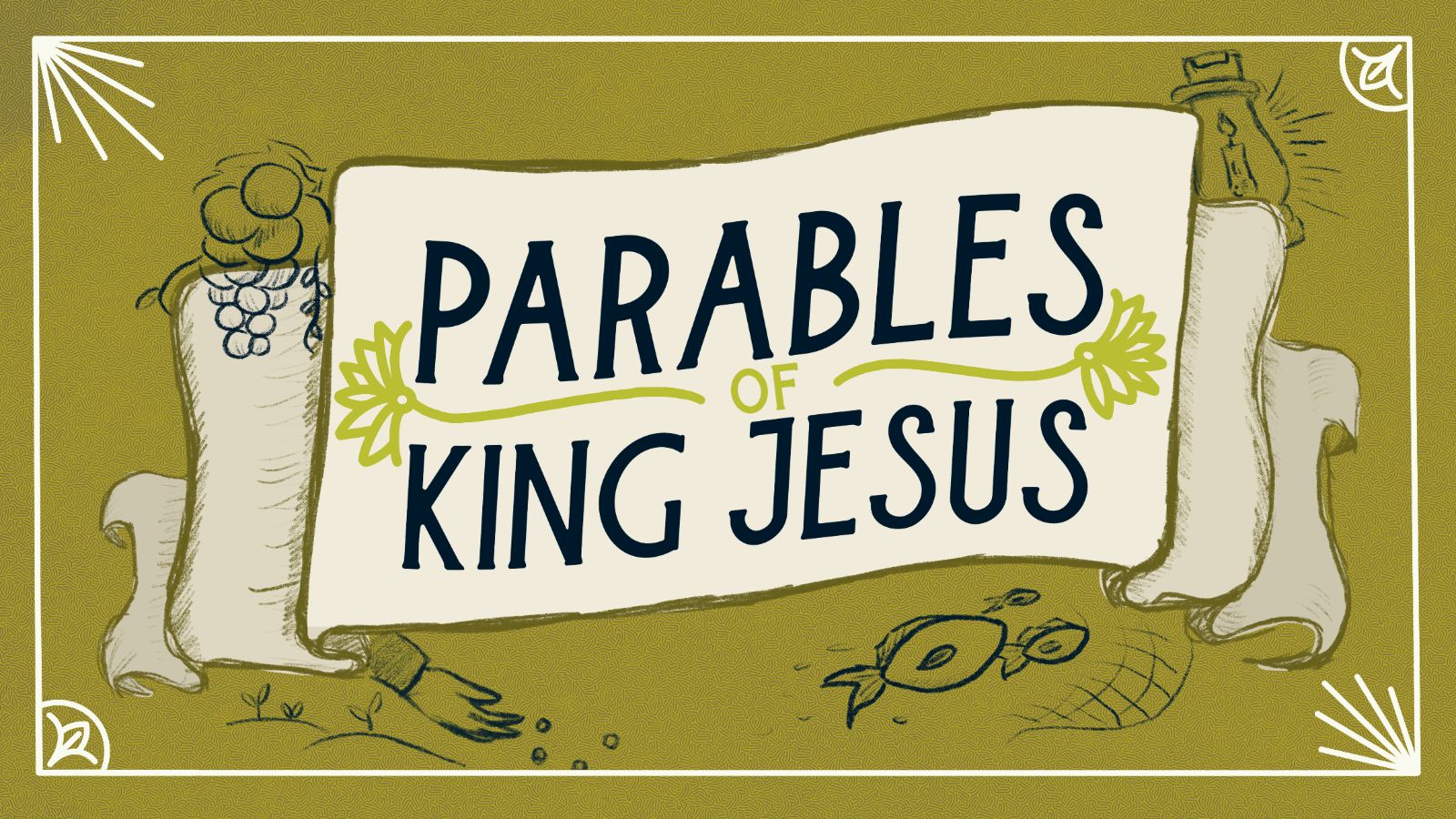
Parables of King Jesus
2024 November - 2025 June
Scriptures: Gospels
Theme: Parables - short stories with a message - were a key way Jesus communicated profound truths. They engage the imagination, making abstract ideas memorable and relatable. The “Prodigal Son” and the “Good Samaritan” are among the best-known, their influence deeply rooted in Western culture.
Far from mere entertainment, Jesus’ parables revealed truths about God’s purpose, the human condition, and His mission. They challenged listeners to rethink their beliefs and actions, calling for a decisive response.
The Gospels contain about 30 parables, ranging from simple to complex. Most lack explanations, inviting reflection, discussion, and deeper exploration. This element of mystery in Jesus’ parables was intentional, encouraging thoughtful engagement. However, history shows his parables were often misunderstood or misapplied—sometimes with tragic consequences. Learning from these mistakes is crucial.
Jesus’ parables address a wide array of themes, including the nature of God’s Kingdom, His grace and forgiveness, Christian discipleship, prayer and persistence, and the realities of future judgment and accountability. In this series, we explore Jesus’ parables in depth, uncover their meaning and message, and seek to apply their timeless truths to our lives today.

Mission of God
2020 September - 2021 September
Scriptures: Book of Ephesians
Theme: The book of Acts recounts how the Gospel first reached Ephesus, a bustling metropolis situated at the crossroads of what is now Turkey and Greece. Paul and his team brought the message of Jesus' salvation to this vibrant city, and Luke’s account in Acts captures both the triumphs and challenges of this endeavor. The Gospel spread from the dusty streets, crowded marketplaces, and academic halls of Ephesus to the entire province of Asia, drawing many to the faith. However, it also provoked fierce opposition, culminating in a riot led by devotees of the local pagan deity, who filled the city’s stadium in protest. To many, it seemed as if Jesus’ ambassadors were indeed "turning the world upside down."
Yet there is more to this story than Luke’s action-packed narrative reveals. The fierce opposition encountered by Paul’s team reflects a cosmic struggle between God’s mission and the dark powers of evil furthering the Devil’s schemes. The New Testament Letter to the Ephesians pulls back the curtain to offer a divine perspective on these earthly events. Behind the efforts of Christ’s messengers stands the eternal Trinity, whose plans were formed before time began. Ephesians unveils the divine drama of the Father’s love, choice, and purpose, conceived before creation itself. It also highlights the Son and the Holy Spirit, who were commissioned to bring this plan to fruition. This is "the Mission of God" - purposed in eternity, accomplished in time, and destined to be fulfilled in God’s eternal future. The Church, as God’s people, does not create its own mission; rather, it participates in God's Mission which is destined to triumph over the forces of Evil.
Let us study Ephesians together so we can fully engage in the Mission of God, appropriate what’s been accomplished by the Trinitarian God, and be equipped to resist the cosmic powers of evil.
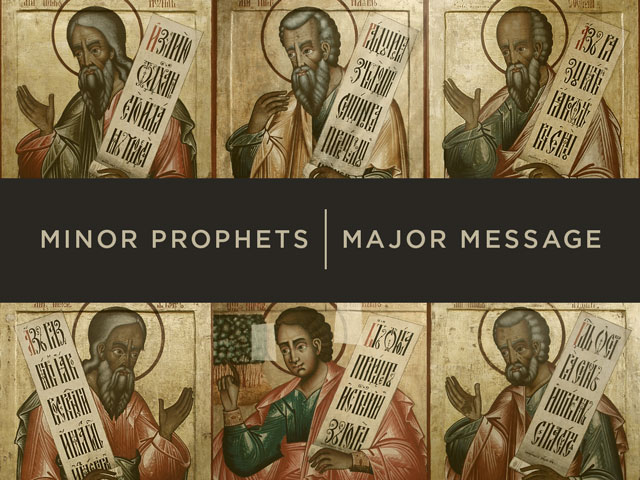
Minor Prophets | Major Message
2014 November - 2015 June
Scriptures: Hosea, Joel, Amos, Obadiah, Jonah, Micah, Nahum, Habakkuk, Zephaniah, Haggai, Zechariah, Malachi
Theme: While the Minor Prophets are usually the least read books in the Bible, the truth is that they are filled with Major Messages that call God’s people back to His glorious purpose and will. Injustice and cruelty, nationalism and prejudice, selfishness and improper community living are all addressed in the Minor Prophets. In the midst of this black backdrop comes the striking descriptions of a loving God, Jesus the coming Saviour and the empowering Holy Spirit who call God’s people to live a life that displays Him to others.

Essentials
2012 April - 2012 July
Scriptures: Various
Theme: This series helps us understand what items are essential for our faith and from which we should not deviate from the proper scriptural presentation.
This is in contrast to the items (such as the gifts) in which we can be flexible with how they are practiced or understood.

Parables of King Jesus
2024 November - 2025 June
Scriptures: Gospels
Theme: Parables - short stories with a message - were a key way Jesus communicated profound truths. They engage the imagination, making abstract ideas memorable and relatable. The “Prodigal Son” and the “Good Samaritan” are among the best-known, their influence deeply rooted in Western culture.
Far from mere entertainment, Jesus’ parables revealed truths about God’s purpose, the human condition, and His mission. They challenged listeners to rethink their beliefs and actions, calling for a decisive response.
The Gospels contain about 30 parables, ranging from simple to complex. Most lack explanations, inviting reflection, discussion, and deeper exploration. This element of mystery in Jesus’ parables was intentional, encouraging thoughtful engagement. However, history shows his parables were often misunderstood or misapplied—sometimes with tragic consequences. Learning from these mistakes is crucial.
Jesus’ parables address a wide array of themes, including the nature of God’s Kingdom, His grace and forgiveness, Christian discipleship, prayer and persistence, and the realities of future judgment and accountability. In this series, we explore Jesus’ parables in depth, uncover their meaning and message, and seek to apply their timeless truths to our lives today.

Living in Truth & Love
2024 May - 2024 November
Scriptures: Epistles of John
Theme: John’s New Testament Letters (1-3 John) address congregations unsettled by the recent defection of prominent members who denied the Person of Christ, thereby disrupting the community's harmony. These letters reassure the remaining believers of their salvation in Christ, affirm the truth of the original teachings they received, and the value of the mutual love they practiced. John counters the opponents’ boastful claims by exposing the inconsistency between their words and actions.
1 John is often seen as presenting ‘tests of eternal life’ for Christians to evaluate their own salvation. Commentators suggest anywhere from three to eleven self-administered tests of assurance. But this approach is often counterproductive, as ambiguous results increase anxiety rather than provide certainty. We propose that these ‘tests’ are intended to evaluate the believer’s fellowship with God, rather than their ultimate salvation.
John’s primary goal is encouragement, not testing. He offers direct statements of reassurance that are independent of subjective self-evaluation. His ‘tests’ are aimed at identifying opponents, rather than evaluating believers; they helped early Christians distinguish between true and false prophets and teachers. Ultimately, John seeks to ensure that his community continues to walk in truth and love. Rightly applied the ‘tests’ are aids; wrongly applied they are hazards.

Believe
2023 January - 2024 May
Scriptures: Gospel of John
Theme: The first three ‘Synoptic’ Gospels adopt a common viewpoint. The 4th Gospel-John-is ‘maverick,’ unconventional, not repeating, but breaking new ground. Importantly, John emphasizes individualism. Contrary to the collective culture of his day, Jesus repeatedly calls for decisive individual belief. Statements like, ‘the one who believes…,’ abound; response to Jesus has to be personal to be real. Here, Jesus engages in extended conversations with individuals.
The term ‘church’ (ekklesia) never appears in John; his corporate symbols-the Flock & the Vine-prioritize the individual’s relation-as ‘sheep’ or ‘branch’ to Jesus-over intra-community relationships. For John, the Church is vacuous without the believer’s personal relationship with Christ.
Nevertheless, it would be wrong to think John ignores the Church. With the introduction of “the disciple Jesus loved” (the ‘Beloved Disciple’) this Gospel depicts an alternative way of doing church. As the last Gospel written, John was aware of the trend towards hierarchy and uniformity among churches planted by Peter and Paul. The Beloved Disciple depicts an alterative egalitarian paradigm, a ‘family model’ for the church, validated by the risen Christ in John’s epilogue (John 21).
Let’s use this study of John to cultivate our personal, intimate relationships with Christ. Let’s also consider what kind of church community the risen Christ desires today.

A Life Worth Living
2022 April - 2022 December
Scriptures: Book of Philippians
Theme: The Church in Philippi held a special place in Paul’s heart, as evidenced by his letter to this congregation. The book of Acts provides a detailed account of Paul’s founding of this church, which was multi-cultural, multi-ethnic, and socially diverse from the outset. Its founding members included Lydia, an immigrant entrepreneur, and the Philippian jailer with his family.
If the apostle Paul had a favorite church, it was likely Philippi. Unlike many of his other letters, which were problem-solving treatises addressing urgent church issues, Paul’s letter to the Philippians reflects a healthy and supportive community. The Thessalonians were troubled by end-time anxieties, Corinth faced factionalism and moral issues addressed in multiple letters, and the Galatian churches were exhorted to resist the incursions of Judaism. In contrast, Philippi was not a problem church; it consistently supported Paul’s gospel mission, allowing him to focus on mutual encouragement rather than asserting his apostleship.
The New Testament book of Philippians offers a glimpse of Paul’s relationship with a normal, healthy church. Its contents are not dominated by dispute resolution or problem-solving. Paul’s letter has been described as a family letter, a letter of consolation, and one of friendship. It is all these and more, providing a unique portrait of normal, healthy church life in a first-century Greco-Roman setting. There is much for us to appreciate and replicate as we study it together.

No Other Gospel
2021 September - 2022 March
Scriptures: Book of Galatians
Theme: watch-this-space

Mission of God
2020 September - 2021 September
Scriptures: Book of Ephesians
Theme: The book of Acts recounts how the Gospel first reached Ephesus, a bustling metropolis situated at the crossroads of what is now Turkey and Greece. Paul and his team brought the message of Jesus' salvation to this vibrant city, and Luke’s account in Acts captures both the triumphs and challenges of this endeavor. The Gospel spread from the dusty streets, crowded marketplaces, and academic halls of Ephesus to the entire province of Asia, drawing many to the faith. However, it also provoked fierce opposition, culminating in a riot led by devotees of the local pagan deity, who filled the city’s stadium in protest. To many, it seemed as if Jesus’ ambassadors were indeed "turning the world upside down."
Yet there is more to this story than Luke’s action-packed narrative reveals. The fierce opposition encountered by Paul’s team reflects a cosmic struggle between God’s mission and the dark powers of evil furthering the Devil’s schemes. The New Testament Letter to the Ephesians pulls back the curtain to offer a divine perspective on these earthly events. Behind the efforts of Christ’s messengers stands the eternal Trinity, whose plans were formed before time began. Ephesians unveils the divine drama of the Father’s love, choice, and purpose, conceived before creation itself. It also highlights the Son and the Holy Spirit, who were commissioned to bring this plan to fruition. This is "the Mission of God" - purposed in eternity, accomplished in time, and destined to be fulfilled in God’s eternal future. The Church, as God’s people, does not create its own mission; rather, it participates in God's Mission which is destined to triumph over the forces of Evil.
Let us study Ephesians together so we can fully engage in the Mission of God, appropriate what’s been accomplished by the Trinitarian God, and be equipped to resist the cosmic powers of evil.
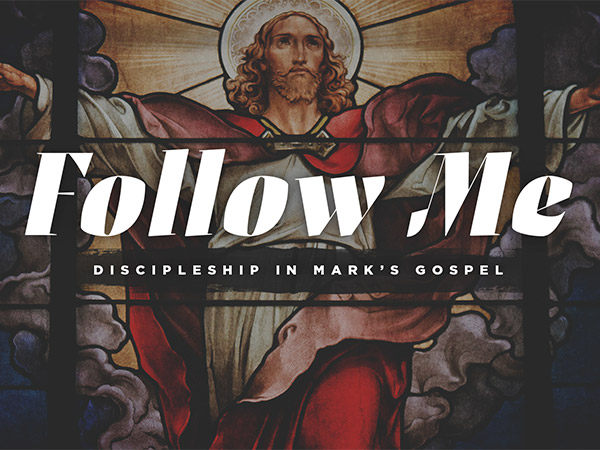
Follow Me
2020 January - 2020 September
Scriptures: Book of Mark
Theme: Each of the 4 Gospels has its own emphasis. Mark’s account of Jesus’ life, death & resurrection emphasizes discipleship. With the short, sharp command to “Follow Me,� Jesus challenged people to accompany him. Those who obeyed had a life-changing experience. Today Jesus still calls people to walk the way of discipleship — to be changed and help change the world. Let’s follow Him!

Thriving in a Hostile Culture
2019 September - 2019 November
Scriptures: Various
Theme: We’ll explore how Daniel and his three friends dealt with life as a minority culture in Babylon. Christians in Canada are also a minority culture living in a Post-Christian society. God asks both Daniel and us to not merely live, but thrive as a minority. Join us as we explore what that looks like.

Echoes of Eden
2019 July - 2019 September
Scriptures: Various
Theme: Echoes of Eden is a reminder that God wants real and significant relationship with humans. It was lost in Eden, but never forgotten by God. Even though his people Israel were in captivity in Egypt, God still pursued the Edenic relationship with them. He rescued them from slavery, intimately cared for them and gave them a new way to relate to Him and each other. The final scene in Exodus is of a dwelling place filled with God’s presence right in the midst of his people. God will always fight to have a sacred place with us.
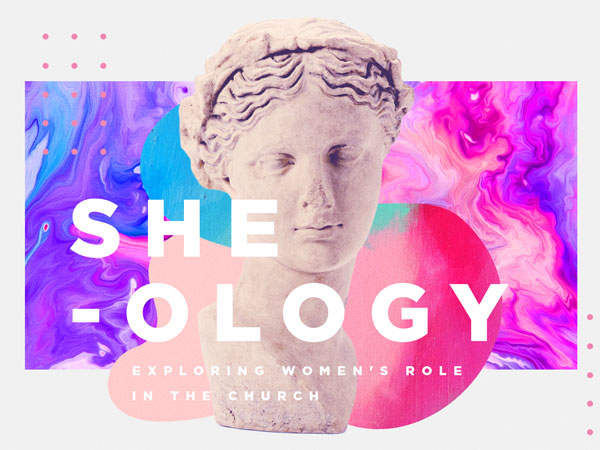
She-ology
2019 June
Scriptures: Various
Theme: In this new series, She-ology, we will explore the role of women in the ministry of Jesus and the early church. Some say women had a more hidden role, and that they carried out a secondary or second level service. But in this first message we will see from the Gospels that the women who followed and served Jesus were as much his disciples as the more well known male disciples.

Remade - Redeeming Our Relationships
2019 May - 2019 June
Scriptures: Various
Theme: A vibrant relationship with Jesus leads to a radical change in all our relationships but especially in our marriages. The evidence of the work of the Holy Spirit in our lives will be seen in redeemed relationships.

Counter Cultural
2019 Febuary - 2019 April
Scriptures: 1st Corinthians
Theme: Corinth was a bustling capital city filled with entrepreneurs, sports stars, and people from all over the globe who wanted to get ahead. It had so much going for it. But morally, well let’s just say it was known as the city where “anything goes!� If you were a Christian living there, how would you remain faithful to who you are in Jesus without being influenced to be something you’re not? God called the Corinthians and he calls us today to live counter-cultural lives so our friends, family and colleagues can know the freedom in Jesus Christ!

New Beginnings Slide
2019 January
Scriptures: Various Passages
Theme: New beginnings are something everyone experiences at some point, but more often they happen as the New Year begins. People want a new start, to turn the page from the previous year, and even possibly head in a new direction. Well, new beginnings with God have all of those same characteristics and more. Often we are tired of living the way we have been, or we don’t like the person we are becoming and want new direction in our life. Whatever the reason you have for a new beginning, God wants to be a big part of that. This three week series looks at Joshua, Abraham, and Moses in their new beginnings with God.

Hope for All
2018 December
Scriptures: Various Passages
Theme: Whether we feel like we’re on top of the world or we’re in a dark depression, we all need hope. We will learn how God meets his people wherever they are and gives them hope that endures. This was true in Biblical times and continues to be true today.

Uncommon Community
2018 October - 2018 November
Scriptures: The Book of Acts
Theme: Uncommon Community—it’s an ideal admired by many, replicated by a few; a diverse multicultural community characterized by radical generosity, unselfish sharing, heartfelt hospitality, and compassion for the needy. Yet they also courageously proclaimed their message and challenged the injustice of governing elites, whether religious or political. It’s the kind of movement each of us, at some point, has desired to join—it’s the Jesus movement that became the ekklesia, the church. At CIT, we believe that the same Person (Jesus) and Power (God’s Holy Spirit) can produce & sustain an equivalent uncommon community in our city today.

Navigating Change
2018 September
Scriptures: The Book of Acts
Theme: How to live in a volatile culture .....
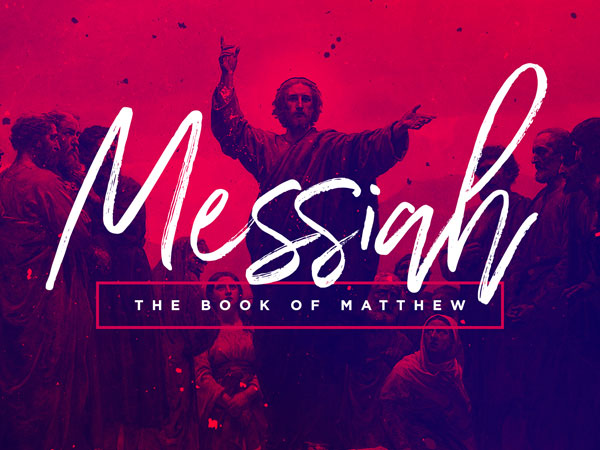
Messiah
2018 January - 2018 September
Scriptures: The Book of Matthew
Theme: Matthew’s Gospel presents Jesus as the Messiah, Israel’s promised and long-awaited Saviour and King. Jesus, the Messiah-King came to save his people, not merely from foreign oppression as many expected, but more fundamentally from their sins–both national and personal sins. As Immanuel –‘God with us’– Jesus also does for us what we cannot do for ourselves–live a righteous, God-satisfying life. This very same Messiah-King also establishes God’s kingdom on earth. A kingdom not based on earthly power, wealth and prestige, but one based on love for God and love for others. Ultimately Jesus, the Messiah-King, died on the cross and resurrected, thereby empowering his followers to live out his kingdom values, both collectively as his church and personally as his disciples.
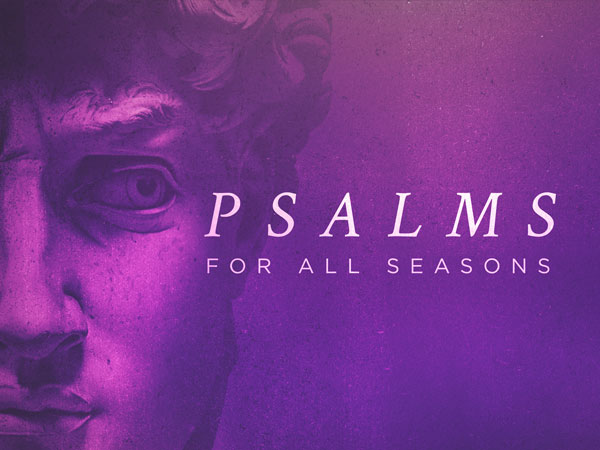
Psalms For All Seasons
2017 July - 2017 December
Scriptures: The Book of Psalms
Theme: No matter what your situation, your condition, or the current emotion you are experiencing, someone has been there before you. The 150 psalms reflect the prayers, songs and praise to God as His people passed through the many seasons of life. Psalms winds its way through experiences of despair, sickness, joy, complaint, thankfulness, frustration, exultation, disappointment, and as it does, it provides words for us to speak to God as we pass through all seasons of life.

Anchored – Truth in Changing Times
2017 January - 2017 July
Scriptures: Topical
Theme: This series explores the truths of the Christian faith and addresses common objections and challenges to that faith. We will make a distinction between critical truths which are essential to all Christians, and issues on which Christians can have legitimate differences of opinion.

Visions in the Dark
2016 April - 2016 December
Scriptures: Isaiah, Ezekiel, Daniel & Revelation
Theme: Have you ever felt discouraged or depressed? Has your situation ever felt “dark,� that prospects have dimmed and things may get worse? The Bible records times when God’s people faced this type of scenario. On such occasions God sent His people prophets and gave those prophets visions–heavenly visions of God & His throne & the way God sees things. Daniel saw heavenly scenes in his “night visions;� that view, from another perspective, from a heavenly dimension, affected the way he viewed his current, dark, situation. It is just the same with us today.
We will look at the visions given to the prophets Isaiah, Ezekiel, Daniel & John’s Apocalypse to derive lessons applicable to us as God’s people today.

Exodus – God Reveals, God Rescues
2015 October - 2016 April
Scriptures: Exodus
Theme: This message series focuses on God revealing who He is, and on His continual work of rescuing people from their slavery and oppression. When people feel as though they are hemmed in on every side with no way forward, God shows Himself to be more than capable of delivering them from whatever is holding them. In this series, be prepared to see God in ways that will encourage you to look to Him for the rescue you are longing for.

Kingdom Sight
2015 June - 2015 September
Scriptures: Matthew 12-24
Theme: This series covers the Kingdom parables in the Gospel of Matthew. While Jesus walked the earth, He endeavoured to show His disciples and the Pharisees how wrong they were in their expectations of what the Kingdom of God was like. While they expected a physical kingdom led by a restored Israel, Jesus helped them to see how His Kingdom was on an altogether different plane. This resulted in many being challenged and needing to make adjustments in order for them to enter into God’s Kingdom.

Minor Prophets | Major Message
2014 November - 2015 June
Scriptures: Hosea, Joel, Amos, Obadiah, Jonah, Micah, Nahum, Habakkuk, Zephaniah, Haggai, Zechariah, Malachi
Theme: While the Minor Prophets are usually the least read books in the Bible, the truth is that they are filled with Major Messages that call God’s people back to His glorious purpose and will. Injustice and cruelty, nationalism and prejudice, selfishness and improper community living are all addressed in the Minor Prophets. In the midst of this black backdrop comes the striking descriptions of a loving God, Jesus the coming Saviour and the empowering Holy Spirit who call God’s people to live a life that displays Him to others.

A Great Cloud of Witnesses
2014 April - 2014 November
Scriptures: Acts 14–30
Theme: The Bible begins with accounts of lives of patriarchs like Adam, Noah, Abraham, Isaac, Jacob & Joseph, narrated in Genesis. These men, accompanied by their wives (Sarah, Rebecca, Rachel, etc) are examples of people who lived in relationship with the Creator-God. Like us, they experienced troubles and challenges—temptation & testing, disaster & deliverance, love & hatred, relocation & reunion. Yet through it all they testified the benefits of living by faith in the God they got to know personally and whom they believed worked all things for their ultimate good. Today we can be inspired and learn valuable lessons from this 'cloud of witnesses.'
 Church in Toronto - Sermon Library (Beta version under construction)
Church in Toronto - Sermon Library (Beta version under construction)





























